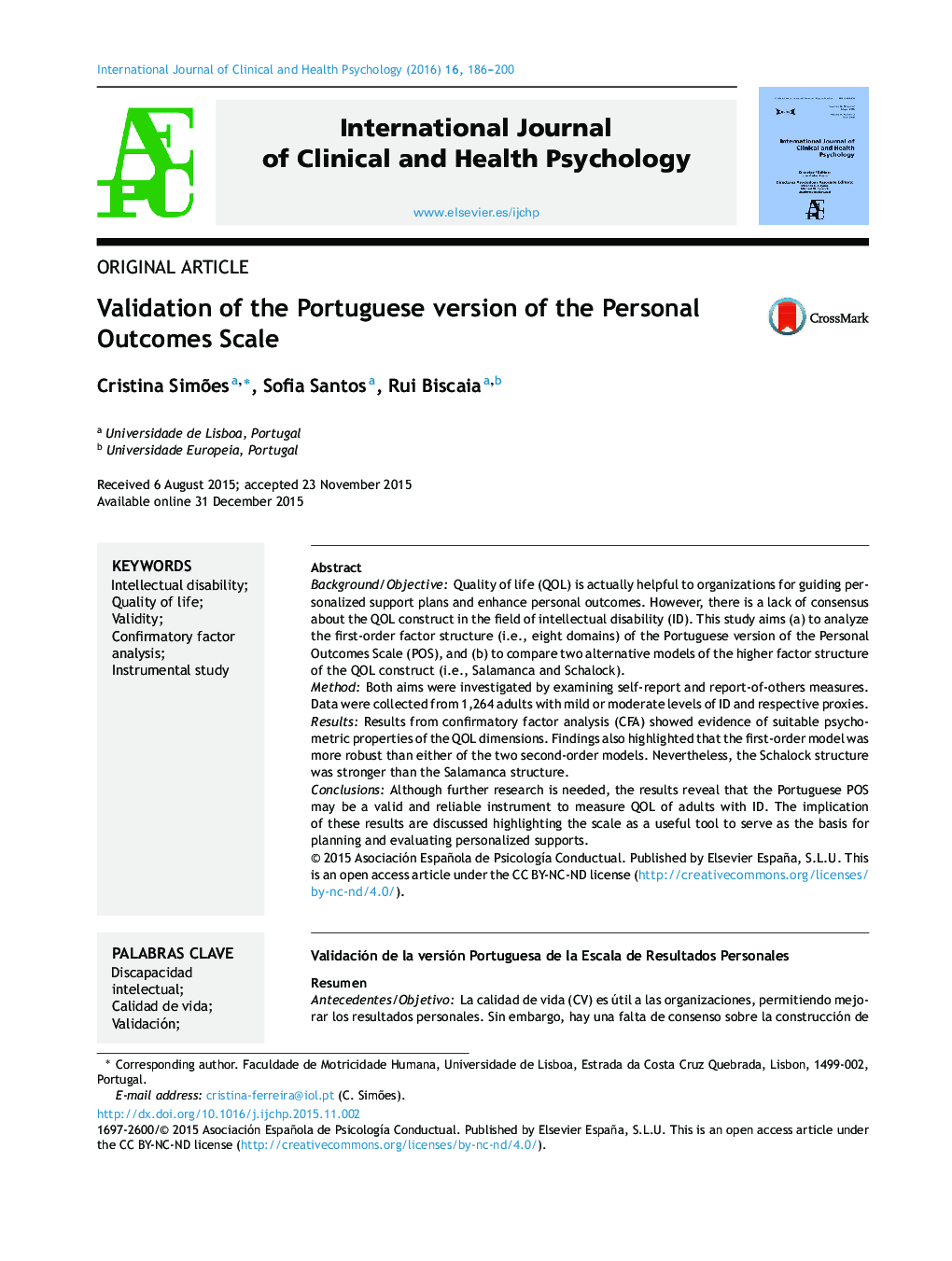| کد مقاله | کد نشریه | سال انتشار | مقاله انگلیسی | نسخه تمام متن |
|---|---|---|---|---|
| 879925 | 1471342 | 2016 | 15 صفحه PDF | دانلود رایگان |
Background/ObjectiveQuality of life (QOL) is actually helpful to organizations for guiding personalized support plans and enhance personal outcomes. However, there is a lack of consensus about the QOL construct in the field of intellectual disability (ID). This study aims (a) to analyze the first-order factor structure (i.e., eight domains) of the Portuguese version of the Personal Outcomes Scale (POS), and (b) to compare two alternative models of the higher factor structure of the QOL construct (i.e., Salamanca and Schalock).MethodBoth aims were investigated by examining self-report and report-of-others measures. Data were collected from 1,264 adults with mild or moderate levels of ID and respective proxies.ResultsResults from confirmatory factor analysis (CFA) showed evidence of suitable psychometric properties of the QOL dimensions. Findings also highlighted that the first-order model was more robust than either of the two second-order models. Nevertheless, the Schalock structure was stronger than the Salamanca structure.ConclusionsAlthough further research is needed, the results reveal that the Portuguese POS may be a valid and reliable instrument to measure QOL of adults with ID. The implication of these results are discussed highlighting the scale as a useful tool to serve as the basis for planning and evaluating personalized supports.
ResumenAntecedentes/ObjetivoLa calidad de vida (CV) es útil a las organizaciones, permitiendo mejorar los resultados personales. Sin embargo, hay una falta de consenso sobre la construcción de la CV en personas con discapacidad intelectual (DI). Este estudio tiene como objetivo (a) analizar los factores de primer orden de la versión portuguesa de la Personal Outcomes Scale (POS), y (b) comparar dos modelos alternativos de segundo orden (Salamanca y Schalock).MétodoEstos dos objetivos fueron investigados a través de medidas del autoinforme y del informe de los otros. Los datos fueron recogidos de 1.264 personas con DI leve o moderada y sus respectivos cuidadores.ResultadosLos resultados de la análisis factorial confirmatorio (AFC) indicaron valores psicométricos apropiados de las dimensiones de la CV. Los resultados mostraron que el modelo de primer orden era más robusto que cualquier uno de los dos modelos de segundo orden. No obstante, la estructura de Schalock fue más fuerte que la estructura de Salamanca.ConclusionesAunque sea necesario más investigación, la POS portuguesa es un instrumento válido y fiable para medir la CV de personas con DI. La implicación de esta escala se discute como una herramienta útil para servir como base para la planificación y evaluación de apoyos personalizados.
Journal: International Journal of Clinical and Health Psychology - Volume 16, Issue 2, May–August 2016, Pages 186–200
